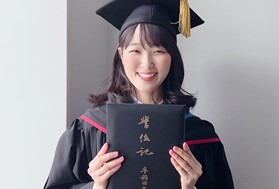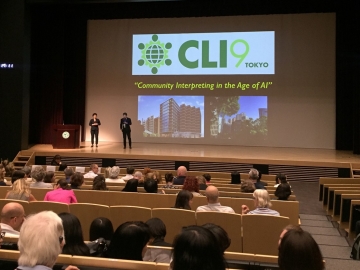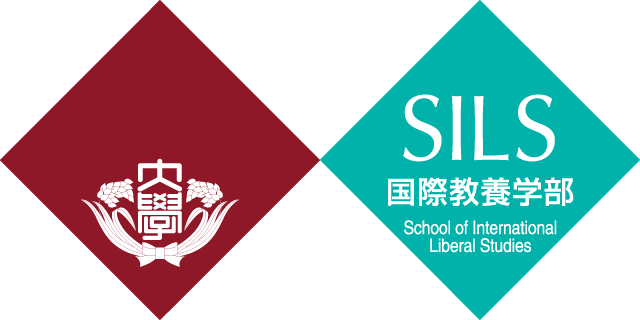- News
- [Introduction of New Faculty Member] KIM, Jihyeon Assistant Professor [Jokyo/助教]
[Introduction of New Faculty Member] KIM, Jihyeon Assistant Professor [Jokyo/助教]
![[Introduction of New Faculty Member] KIM, Jihyeon Assistant Professor [Jokyo/助教]](https://www.waseda.jp/fire/sils/assets/uploads/2022/11/Jihyeon-Kim.jpg)
- Posted
- Mon, 07 Nov 2022
Self-Introduction
Hello, my name is KIM, Jihyeon . I was born in the southern part of South Korea where I spent most of my early childhood. I also spent several years in Seoul and studied abroad in Japan and Canada.
 My field of research is court interpreting in Japan. Working as a practicing interpreter and translator in the fields of law, healthcare, and education, I worked on several research projects on this topic under the MEXT scholarship and JSPS research grants from 2015 to 2022. I am currently teaching first-year seminars regarding research literacy and ethics, academic writing, and court interpreting. While this is my first official teaching experience, I understand from my many years of being a student in higher education that the freshman year plays an important role in building the foundations that will enable students to explore and specialize towards their field of interest.
My field of research is court interpreting in Japan. Working as a practicing interpreter and translator in the fields of law, healthcare, and education, I worked on several research projects on this topic under the MEXT scholarship and JSPS research grants from 2015 to 2022. I am currently teaching first-year seminars regarding research literacy and ethics, academic writing, and court interpreting. While this is my first official teaching experience, I understand from my many years of being a student in higher education that the freshman year plays an important role in building the foundations that will enable students to explore and specialize towards their field of interest.
Recent Research Interest
My field of research is in policies and practices regarding court interpreting in the Japanese legal system. Court interpreting refers to interpreting that aims to give access to and protect the rights of foreign speakers in the process of fact-finding and the assessment of evidence during trials. When I first began my research on this topic during my master’s studies, I conducted a case analysis of legal precedents and judicial opinions regarding the issue of accuracy in court interpreting, and whether it has an effect towards the process and outcome of trials. Drawing on relevant laws and interpretation theories, I analyzed the challenges and limitations in Japan’s court interpreting system from a legal and linguistic perspective.
During my doctoral studies, I conducted research on the notion of the ‘role’ of court interpreters in terms of achieving accuracy in interpreting. Specifically, I focused on the definition of the interpreter’s role under institutional norms, how it is understood among legal practitioners and interpreters, and the contrast between the former and the roles performed in actual practice. To compare and contrast gaps between these roles, I used a three-pronged approach including document analysis of practice manuals for interpreters developed by the Supreme Court of Japan, interviews with key stakeholders, including legal practitioners, court interpreters, and relevant government institutions, along with field observation of interpreter-mediated trials.
The main finding of this research was that the profession of court interpreters continues to face challenges including an unclear definition within the legal framework and inconsistent understanding of their roles and responsibilities amongst the law and court interpreters, which can ultimately hinder foreign speakers from gaining access to justice and have their rights protected.
My doctoral research was awarded the Shinzaki Research Encouragement Award by the Japan Association for Interpreting and Translation Studies in September 2022. My research has also been presented in peer-reviewed journals and conferences on legal and community interpreting such as Critical Link International (as in the photo below), the International Association of Forensic Linguists, and the Japan Association for Language and Law. As of this time of writing (November 2022), I am currently working on two research articles for publication in international peer-reviewed journals.

Critical Link International’s 2019 conference in Tokyo focused on the role of AI in community interpreting, discussing critical issues such as whether AI could potentially supplant interpreting conducted by humans
Profile
KIM, Jihyeon
Born and raised in South Korea. Having a long-standing interest in public service interpreting, Jihyeon is currently focusing on key issues relating to the practice of court interpreting in Japan. She completed a master’s program in international law with a focus on human rights before joining a doctoral program in interpretation studies at the Graduate School of International Culture and Communication Studies at Waseda University, where she received her Ph.D. degree. She started working as a Research Associate at Waseda University in April 2020, where she currently serves as an Assistant Professor as of 2022.
